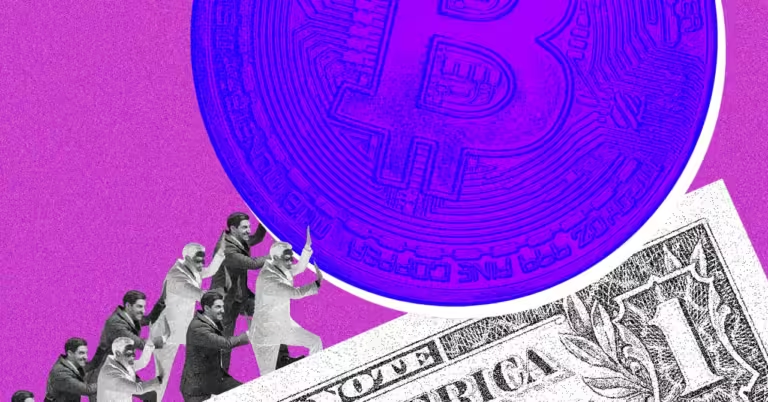Donald Trump is an unlikely ally of cryptocurrencies. Bitcoin’s power, embodied in Satoshi Nakamoto’s founding documents, is to free participants from vague trust assessments and rely instead on a foundation of evidence.
Bitcoin is real. So it was cosmically strange to hear attendees at the Bitcoin 2024 conference in Nashville last week enthusiastically praise a former president who, by one carefully compiled count, lied 390,573 times during his one term in office. Followers of the mathematically incontrovertible blockchain cheered when Donald Trump delivered a speech full of lies, fabrications and fantasies. They roared with delight when he claimed to be responsible for the sudden rise in the value of Bitcoin under his administration. They knew for certain that until recently, he had rejected the very idea of cryptocurrency.
“Bitcoin seems like a scam,” he said in 2021. “I don’t like it because it’s another currency that competes with the dollar.” Trump is now suddenly popular in crypto circles, but no one believes he knows how the tokens work or even what they are. “Staple coins… stable coins,” Trump said at one point, presumably glancing at the teleprompter before correcting himself and pausing. “Do you know what a stable coin is? Does anybody know?”
Apparently not Trump. But that didn’t stop him from making promises that only someone with a deep technical and philosophical misunderstanding of Bitcoin would make. He likened Bitcoin to the steel industry of a century ago — a startling mismatch between an icon of the industrial revolution and the cutting edge of the digital world — and promised to make the U.S. “the crypto capital of the planet and the Bitcoin superpower of the world.”
As conference attendees surely knew, this sentiment undermines the fundamental premise of cryptocurrencies and blockchain: a sovereign system that functions independently of national interests. To quote crypto theorist Eric Casson, “Bitcoin offers a fundamentally new hope that humanity can free itself from the cages of all today’s nation-states.” Trump’s promise of U.S. control of Bitcoin is an affront to Satoshi.
One of Trump’s proposed ideas was a Bitcoin reserve where the US would stash and HODL billions of dollars worth of tokens, which experts believe is of questionable value to taxpayers, but could inflate the value of the currency and enrich the Nashville crowd. Again, manipulation by government superpowers is incompatible with the values of the blockchain revolution. Another promise Trump made was to pardon Silk Road owner Ross Ulbricht. Ulbricht is currently serving a life sentence in federal prison and ran a massive illegal drug and money laundering operation fueled by cryptocurrency. So much for being tough on crime.
Though strange, Trump’s alliance with Bitcoiners seems almost predestined. The crypto community chafes at government regulations and sees Donald Trump as an opportunity to ease state pressure, perhaps to the level of a friendly smack. Trump has encouraged the idea by meeting with major donors and investors and incorporating their views. As if to solidify a barely hidden deal, crypto players have been pumping hundreds of millions of dollars into Trump’s campaign coffers. So it’s not surprising that Trump, at the Nashville conference, promised to put an end to “left-wing fascists and totalitarians who are bent on crushing cryptocurrencies.” Trump gave the idea a rapturous cheer. Trump also suggested that Kamala Harris was one of those “fascists.” “By the way, she’s against cryptocurrencies,” he said. “She is very strongly opposed.” (Indeed, Harris has not set policy and instead lobbyes crypto companies.) The cheers were loudest when Trump announced on his first day in office that he would fire Gary Gensler, the chairman of the Securities and Exchange Commission, who has been cracking down on dodgy cryptocurrency schemes.
It’s a natural question: does the current White House “hate cryptocurrencies” as the industry and President Trump believe? After some research, I found that crypto policy was indeed unclear at the beginning of the administration, with some officials viewing cryptocurrencies as a fraudulent technology. But ultimately, the administration has established a policy that seeks to strike a balance between encouraging innovation in the crypto space and enforcing current securities laws.

